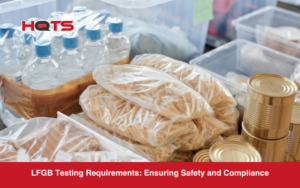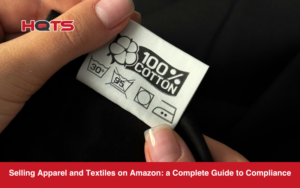China is one of the world’s largest machinery exporter, with a total value of $3.18 trillion. But with many suppliers on the market, it’s important to consider who you work with, especially regarding suppliers’ compliance with legal and safety requirements in your chosen country.
This “How to Import Machinery from China” guide is for foreign buyers interested in importing machinery from China. We’ll cover concrete tips on importing machinery from China, technical specifications, safety standards, and more.
Why Import Machinery From China?
China is one of the world’s largest manufacturing hubs and it is home to some of the most advanced production lines in the world. The sheer size of China’s manufacturing industry means that many that there are many suppliers to choose from.
Some of the reasons for buying machinery from China include:
- China has a relatively low labour cost, which often translates into lower prices of the machinery.
- The quality of the products is often high, yet it can vary greatly between suppliers.
- China has a skilled workforce and advanced manufacturing facilities.
- China has well-established machinery industrial clusters where you can find suppliers with expertise in the machinery field (E.g. in Shanghai, Jiangsu, Guangdong and Shandong provinces).
How to Find Machinery Supplier in China
Having said that, while there are many suppliers in China, finding the best one for your business can be difficult. You should consider several factors before choosing a supplier, such as their price, quality, technical requirements and compliance.
Almost all machinery manufacturers are in and around Shanghai, with some additionally being in Jiangsu, Zhejiang, and Shandong provinces. Although it is best to visit suppliers to understand their products, manufacturing capabilities, and so on, this can become quite difficult due to the COVID-19 pandemic. To ensure that goods meet your standards, it can be helpful to employ the services of a third-party organization that conducts supplier audits or factory audits on-site on your behalf.
There are a wealth of online resources with directories of companies that deal in specific heavy machinery that can align with your needs. For example, in China today, communication can be made to build a relationship and specify your organization’s requirements.
Types of Common Machinery Manufactured in China
- Wheel Loaders
- CNC Machines
- Laser Cutting Machines
- Agriculture / Food Production Machines
- Roll Forming Machines
- Welding Machines
- Packaging & Printing Machinery
This is only a fraction of the machinery which is available within China. Because of this, it will take time to find the right supplier for any niche products required by your business.
What Technical Specifications Are Important When Import Machinery?
Most organizations do not require bespoke machinery. Because of this, factory-made machinery is more popular. A machine’s technical specifications are the most essential thing to consider when purchasing machinery. It is common for suppliers to provide detailed sheets that provide these specific details.
Key aspects of this sheet that should be carefully inspected:
The Overview of the Machinery
When checking the specifications, it is vital to find out which model the machine is and an overview of its functionality and purpose. This ensures the device is built for the task you are trying to complete. In addition to this, if the model name is known, spare parts may be found later if there are any mechanical faults.
The Internal Parts of the Machinery
As well as, the overview looking at the main internal parts of the machine will give further clarity on the quality of the machinery. Look at the motor and bearings to ensure they align with your needs.
The Electrical Aspects of the Machinery
In addition to the internal parts, it is also vital to carefully inspect the machinery’s electronics and electrical output, looking for such things as power, voltage, and efficiency. As different countries work in various voltage outlets, making sure these align with what is used within your country is essential. Understanding the power output also indicates additional costs the machine could produce from production use.
The Machinery’s Software
When using machinery, understanding the software is essential to using the machine to its fullest. Familiarity with the machine and any existing software that operates on it will allow for a smooth transition once you have imported any new systems.
Physical Characteristics
Characteristics such as weight are important when importing goods. This will indicate the shipping price and ensure that the machinery is made from quality materials.
Certifications/Class
The specifications should also mention any certifications awarded to the machinery, such as the CE marking or the American Society for Testing and Materials (ASTM). This ensures the machinery fits the quality standards and fits in with regulatory standards.
Protection classifications are also mentioned within the specifications. An example is the Ingress Protection ratings, which show sealing quality to avoid leakage and protect against foreign bodies such as dust or dirt entering.
Although each piece of machinery has different specifications, these principal factors will allow your organization to understand the quality before purchasing. This lessens the chance of any bad purchases with lower-quality equipment.
China Machinery Import and Machinery Safety Standards
When importing machinery from China, many countries have directives and regulatory bodies that impose strict regulations on machinery to ensure they comply with universal standards. In most markets, it is the importers responsibility to ensure that machinery complies with applicable standards.
Suppose an importer attempts to import machinery from China that is not up to standard. In that case, it may be stopped and seized before entry into the country, with potential action against the importer, such as hefty fines.
With this in mind, it is imperative that careful consideration is made and steps are taken to ensure that the machinery complies with the regulations set out by your local body and customs authorities.
Examples of Machinery Regulations by Country
European Union
One of the major regulations within the EU is the Machinery Directive which regulates all machinery manufactured or imported into the EU.
In addition to the Machinery Directive, Importers are responsible for correctly complying with the CE marketing directive concerning correctly labelling machinery. This means they must ensure compliance with all regulations set out by it and that technical documentation is managed correctly.
Within the EU, there are also regulations regarding electrical components and equipment named The Restriction of Hazardous Substances or ROHS, which must be complied with. But keep in mind that some EU member state may have their regulations that may be applicable.
The United Kingdom
Due to the United Kingdom leaving the EU due to Brexit, regulations have changed. For example, the transition from the traditional CE marking directive to UKCA markings.
Organizations must follow these regulations and ensure that all machinery complies with local bodies. Without it, there may be issues getting the goods through customs or having the equipment recalled and seized in a worst-case scenario.
ISO Standards for Machinery
In addition to the examples mentioned above, many different ISO standards have been developed for specific types of machinery. These include:
- ISO 12100:2010 – Safety of machinery – General principles for design – Risk assessment and risk reduction.
- ISO 13857:2019 – Safety of machinery – Safety distances to prevent hazards zones reached by upper and lower limbs.
- ISO 13854:2019 – Safety of machinery – Minimum gaps to avoid crushing of parts of the human body
You can click here to read more about the ISO standards.
China Machinery Import Testing And Quality Assurance
Lab Testing Reports
When purchasing machineries, it is key to note that it is a requirement for all machinery to be laboratory tested. Keep in mind that some manufacturers will provide you a test report, while others don’t. If they are not tested, a third party should be used to provide testing.
The results of the testing will be provided in a detailed report which should cover:
- SKU
- Issuing company (e.g., HQTS)
- Manufacturer
- Issuing date
- Compliance with regulations that are relevant to the machinery.
Note: Having a testing report is not the only requirement for importing. Other key documentation may be required as well as correct labelling. To look at an example testing report that HQTS provides, click the link here.
Functional Testing and Quality Assurance
One major aspect of importing heavy equipment is ensuring it is of satisfactory quality. Without check it, you risk importing a machinery from China full with defects – and this can have negative monetary implications and potentially impact your manufacturing capabilities. In addition, there is also the potential that even if you tried to return the goods to the supplier, the Chinese customs might not allow the machinery to reenter the country. For this reason, third-party quality assurance organizations are beneficial in minimizing the chances of this occurring.
Generally, the more exhaustive the technical requirements of your machinery is and how advanced it is, the more comprehensive quality control service you should do. Look at our used excavator inspection guide if you are sourcing used heavy machinery. But other general inspections include:
- Pre-shipment inspections , helpful when you want to quickly assess the quality of a finished machine based on various criteria.
- During production inspections are effective when you want to monitor the production closely and evaluate the product while it’s still on the production line.
But apart from these, there are other important quality control procedures, of which you can learn in our machinery inspection guide.
Conclusion: A Guide to Importing Machinery From China
This guide covered all the basics of importing machinery from China, including finding the right supplier, what criteria to consider, and essential standards. At HQTS, we have over 25 years of experience with inspection services in industry-leading quality control, including machinery testing. Focusing on a wide range of services such as in-depth laboratory testing, functionality testing, and supplier audits to ensure all goods are of quality and comply with the regulatory body’s requirements. Contact us today if you need help checking the quality of the machinery you want to import from China.





